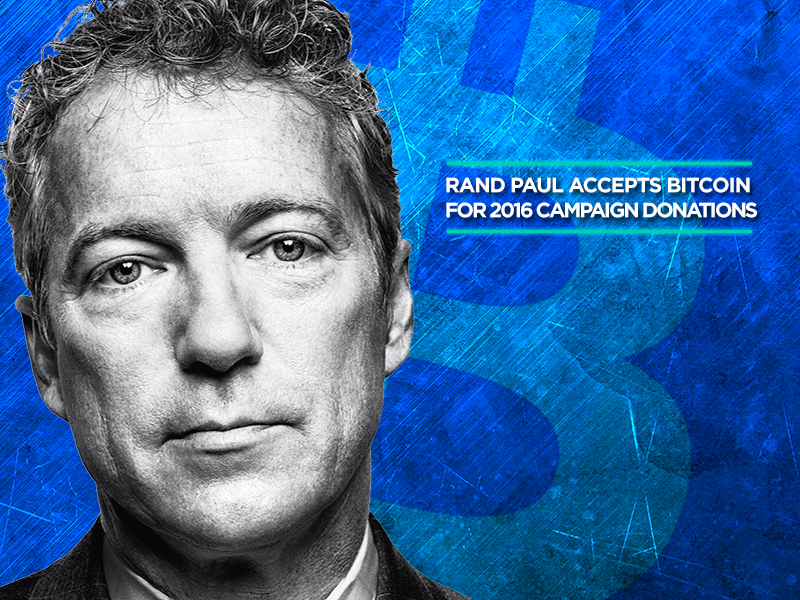Editor’s Note: This article has been modified to correct an error in reporting. Previously, this article said that Jim Fulner was a “libertarian state senate candidate.” Fulner was actually a Libertarian Party candidate for US Senate. We apologize to Mr. Fulner for our mistake.
Bitcoin donations have been helping homeless people, Ebola patients, Edward Snowden, and hundreds of other causes. Now, bitcoin will be helping U.S. Senator Rand Paul fund his 2016 presidential campaign.
Also Read: Bitcoin OK for politics, with $100 limit
Paul is not new to cryptocurrency. He has always advocated Bitcoin and has even made suggestions for how Bitcoin could be improved in order to gain a greater role in the financial world. In an interview with Fortune Magazine, Paul said the would like to see a Bitcoin-like currency backed by a basket of stocks — much like Hayek’s private paper money backed by a basket of commodities.
Bitcoin’s Poor Political Track Record
This $100 limit was supported by FEC Commissioner Ellen Weintraub. The Democratic appointee said that the limit was important, as it assuaged the concerns of several commissioners concerning the risks of cryptocurrency. Additionally, Weintraub argued that the limit reduced the risk of foreigners using Bitcoin to illegally fund elections.
Will Rand Paul’s decision help Bitcoin? Let us know in the comments below!
Photo Source: thelibertarianrepublic
